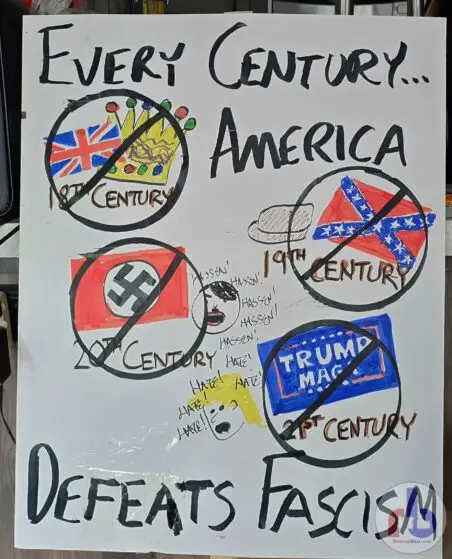Tax Greed Killing Marijuana Retail in Washington State
Medical marijuana supporters in Washington State are reeling from the passage of Senate Bill 5052. The bill was designed to provide regulation to the untamed medical marijuana industry that was undercutting the intent of Initiative 502, the legalization law in the Evergreen State.
Because of this new law, hundreds of retail medical marijuana outlets will be shuttered. Patients who had been allowed to cultivate 15 cannabis plants and possess 24 ounces of marijuana will now be reduced to just six plants and three ounces, if they join a newly-created voluntary registry. Ten-person collective gardens producing 45 plants that any patient 18 and older could join now become four-person cooperatives increased to 60 plants for patients 21 and older only.
The rationale offered by legislators was that without these changes, the recreational marijuana system was in danger of failure and the black market will thrive. Why would someone visit one of the few I-502 retail outlets and pay $25 per gram for marijuana, they figured, when with a medical marijuana recommendation, someone could visit far more unlicensed dispensaries and pay $10 per gram for marijuana? Indeed, Washington State has almost two million more people than Colorado, yet the tax revenues in Colorado and in Washington for April 2015 were both nearly $9 million.
But that’s not quite an apples-to-apples comparison. In Colorado, the taxes are a 10% retail marijuana special sales tax, a 15% marijuana excise tax, and a 2.9% retail and medical marijuana sales tax. In Washington, the recreational taxes are a 25% producer excise tax, a 25% processor excise tax, a 25% retailer excise tax, and state and local sales taxes that can be as high as 9.6% in some places.
Thus, to achieve the same roughly $9 million in April 2015 marijuana tax revenues, Colorado has sold about $74 million in marijuana products compared to Washington’s $25 million in the month of April.
Even in Colorado, the legal marijuana sales are undercut by the black market. In the Colorado mountain towns it is estimated that tourists make 90% of the marijuana purchases, and tourists make up perhaps 40% of purchases statewide. That suggests that a whole lot of locals are buying from the same underground sources they did before 2012.
The problem in Colorado, though, isn’t as pronounced as it is in Washington. In Seattle, nearly 300 unlicensed medical dispensaries are running alongside just fifteen licensed I-502 stores. In April 2015, those fifteen stores combined for $3.7 million in sales, the greatest one month sales amount for any city in Washington. But coming in second place in the state is Vancouver, a city with just one-fourth Seattle’s population and just four licensed I-502 retailers, with sales of $3.3 million.
The prime factor in Vancouver’s success is its geography. It’s just across the river from Portland, Oregon, a city about the size of Seattle. In fact, the best-selling pot shop in Washington State is in Vancouver; it’s Main Street Marijuana with $1.5 million in April 2015 sales. Uncle Ike’s in Seattle is #2 with $1.23 million in sales, followed by another Vancouver store, New Vansterdam, coming in with $1.18 million in sales. No other pot shop in Washington State topped $700,000 in one-month sales. It’s pretty clear that it’s mostly tourists from states without legal sales who are the ones willing to pay the high taxes to get high.
By attaching these new restrictions to medical marijuana in Washington, the legislature and the governor have just ensured the problem they’re trying to solve will get worse, not better. Those tourists propping up the extreme taxation aren’t the types who are buying marijuana in large quantities on a regular basis. These patients are the “whales” in casino parlance who would buy the most weed the most often if it were affordable; indeed, the proliferation of unlicensed medical marijuana dispensaries proves that demand exists. But they aren’t going to switch over to a new retail system that doubles or triples their costs.
The legislature knows there is a problem and is flailing about trying to solve it, but can’t quite figure out that the solution is to dramatically lower the taxes on marijuana. They’re making an effort currently to support a change to reduce the three levels of 25% taxation to just one excise tax of either 30% or 37%, depending on which bill passes. This would bring their effective tax rates somewhere nearer to the levels we see in Colorado, where a half-gram vapor pen cartridge I can get in a Portland dispensary for twenty bucks sells for sixty-five.
We will gladly pay the taxes on retail marijuana, but only when those taxes are an acceptable trade-off to the difficulties of growing it ourselves or searching for a black market source and accepting whatever crops he or she decides to grow and sell. That total cost can only be slightly greater than the levels that naturally evolved in the unfettered Washington medical marijuana market. The solution for Washington’s tax woes isn’t for medical to become more like recreational, but, ironically, the opposite.






